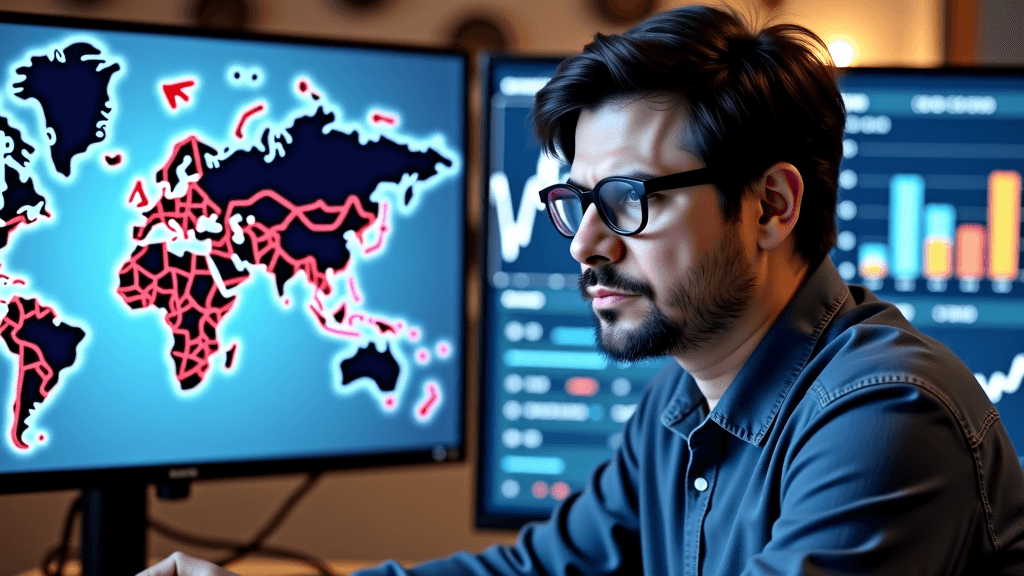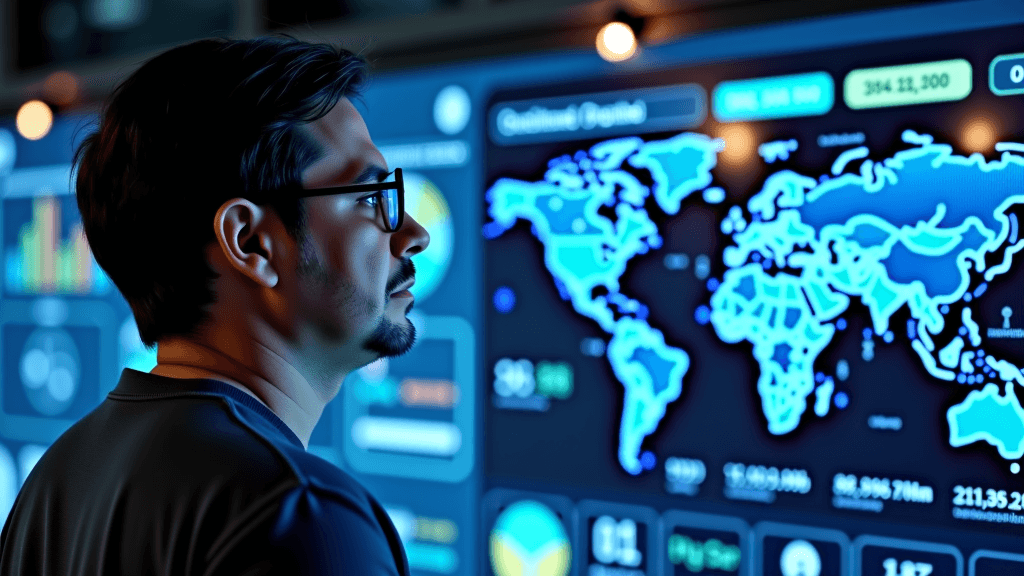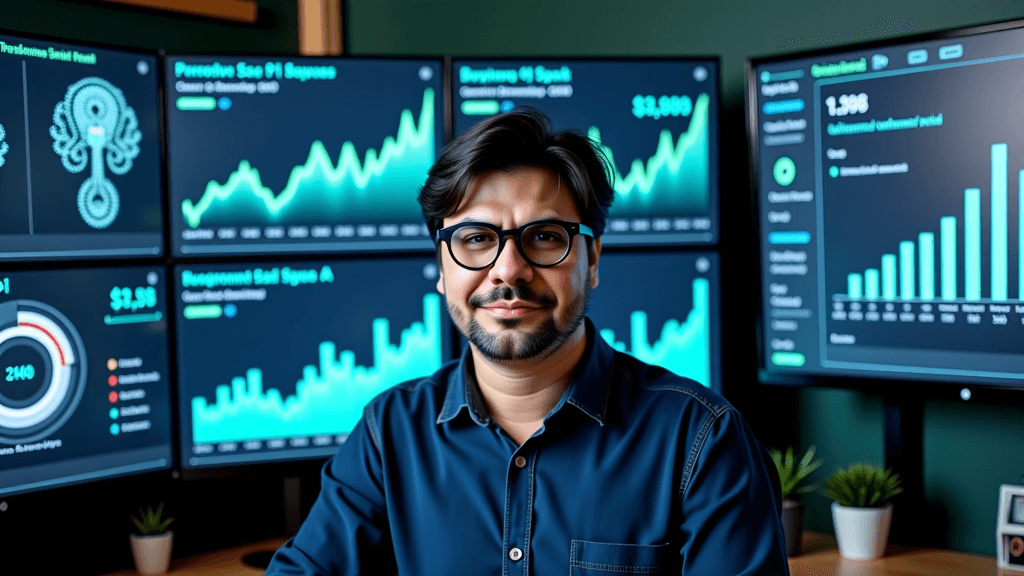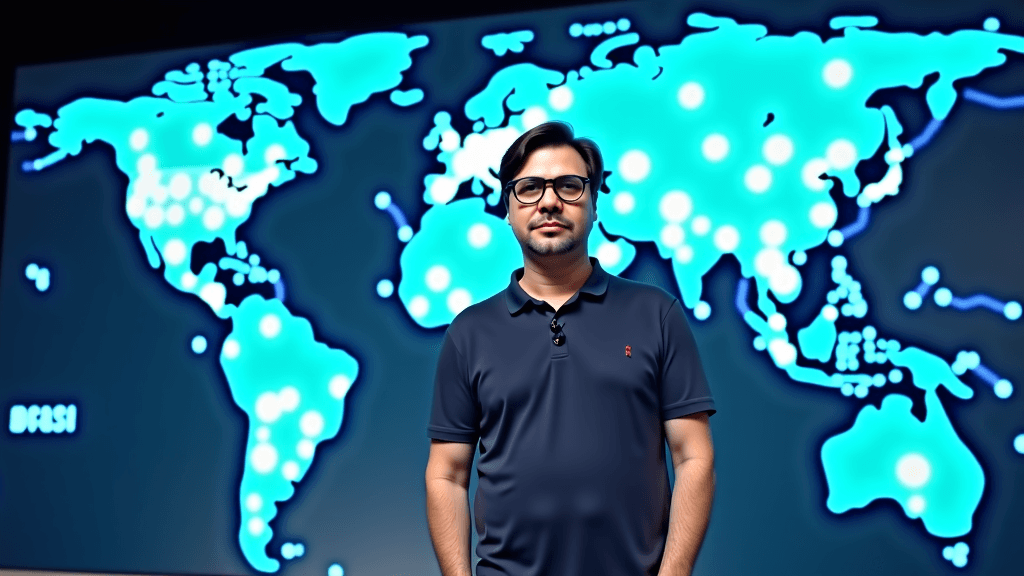All blog posts
Insights on startups, AI, innovation, the future of work and technology education. Practical strategies for impact businesses and digital transformation.
AI Radar: From Fake Lawyers to Corporate Espionage – The Trends Shaping the Future
April 9, 2025 | by Matos AI
AI Radar: Geopolitics, Security and the Tech Race – What Happened in the Last 24 Hours
April 8, 2025 | by Matos AI
AI Radar: UN Warns of Impact on 40% of Global Jobs – The Urgency of Brazilian Positioning
April 4, 2025 | by Matos AI
Artificial intelligence continues its rapid march of transformation, and the last 24 hours have brought us cases ranging from the comical to the worrying. From attempts to circumvent the justice system, revolutions in food production, corporate surveillance and new cyber risks – AI is everywhere, redefining the rules of the game and creating a new landscape of opportunities and challenges for entrepreneurs and organizations.
Avatar in court: when creativity meets legal limits
We start with a case that seems like something out of an episode of Black Mirror: a man in the United States tried to use an AI-generated virtual lawyer to represent him in court. According to G1 report, Jerome Dewald, involved in a labor lawsuit, tried to present his arguments through an AI video, justifying that the avatar “could present his arguments more clearly”.
The judge was not at all happy with the attempt: “I don’t like being deceived,” she said. The court quickly barred the digital avatar before he could even present his arguments. The man ended up apologizing, saying he had no intention of causing trouble.
This case perfectly illustrates the mismatch between the speed of technological innovation and our regulatory mechanisms. In my experience with startups, I often see how entrepreneurs need to navigate this gray area where technology advances faster than the law.
The Food Revolution: AI Reinventing Food Production
While some are using AI for questionable purposes, others are applying it to solve some of humanity's greatest challenges. According to the Forbes Brazil, Glen Gowers, co-founder and CEO of Basecamp, a biotech startup, is leading a revolution that uses AI to transform food production.
Basecamp has developed a model called BaseFold that promises to predict protein structures three times more accurately than DeepMind’s AlphaFold system. This has huge implications for areas such as agriculture, biotechnology and medicine, enabling the creation of crops that are more resilient to climate change and the development of new drugs.
With a $25 million fundraising and $71 million market valuation, Basecamp demonstrates the transformative potential of AI when applied to real and urgent problems. It’s no wonder investors are eyeing these technologies – they have the potential to completely reshape established industries.
The Power Shift: Rich Cities as Losers from Automation
One of the most interesting insights from the last 24 hours comes from S.Paulo Newspaper, which brings a counterintuitive perspective: wealthy cities could be the big losers from AI-driven automation.
While many previous analyses have pointed to low-skilled workers as the most vulnerable to automation, this new wave of AI is targeting “white-collar information workers,” especially in high-income urban centers like San Jose, San Francisco, Durham, New York City, and Washington DC.
This is a fascinating paradigm shift. When I worked on developing public policies for innovation, I always warned about the need to look at the social impacts of technology in a broader and less obvious way. Technological disruption rarely follows linear or predictable patterns – and this is proof of that.
Corporate surveillance: AI as a control tool
In a case that raises serious ethical questions, the CNN Brazil reports that a team of technologists at the department led by Elon Musk would be using artificial intelligence to monitor federal agencies' communications in search of "hostility toward Trump."
This application of AI as a surveillance tool raises critical concerns about privacy and ethical boundaries. The practice is said to be being used to identify expressions of “disloyalty” in a workforce already shaken by layoffs and severe cost cuts.
This is an important warning about how powerful technologies can be used for questionable purposes when there is no adequate transparency and regulation. The question is not whether or not we should use AI, but how to establish ethical parameters for its use.
More Sophisticated Cyber Scams: The Dark Side of AI
The evolution of AI also has its dark side. According to the Brazilian Post Office, cyber scams are becoming more common and dangerous with the use of artificial intelligence.
Criminals are taking advantage of advances in technology to develop more sophisticated methods, such as convincing fraudulent emails, cloned voice messages and manipulated videos with deepfakes. Worryingly, these scams are becoming increasingly difficult to identify.
In my mentoring with technology companies, I have emphasized the urgent need to invest in digital security as an essential component of any business strategy. The irony is that the same AI that creates these risks may also be our best defense, with security software using it to identify threats in real time.
The Decision Imperative: CEOs Who Don’t Use AI Will Get Left Behind
Miguel Lannes Fernandes, AI specialist and director at Faculdade Exame, makes a strong warning in interview with GZH: “The CEO who is not using AI for decision making will be left behind.”
Fernandes points out that, although there is alarm about job losses, what we will see is a change in professions. According to him, AI can facilitate transparency and data analysis in companies, becoming a crucial tool for leaders.
I completely agree with this view. In my journey supporting thousands of startups, I have seen how the ability to integrate AI into decision-making processes has become a determining competitive advantage. It’s not about replacing human intuition, but about enhancing it with data-driven insights and analytics that would be impossible without these tools.
AI democratizing entrepreneurship: the InfinitePay case
Wrapping up the news of the day, we have a practical example of how AI can democratize management tools for small entrepreneurs. According to Value Invest, the artificial intelligence tool JIM, integrated into the InfinitePay application from fintech CloudWalk, offers support to small entrepreneurs in managing financial transactions and sales.
This is a perfect example of what I’ve been calling “democratizing access to business intelligence.” Tools that were once only available to large corporations are now reaching small entrepreneurs, leveling the playing field a bit.
What does this mean for you and your business?
Looking at the panorama of the last 24 hours, it is clear that we are experiencing an unprecedented acceleration in the adoption and application of artificial intelligence. The implications are profound and multifaceted:
- Regulatory surveillance: With cases like the digital lawyer, we can expect greater scrutiny and regulation on AI applications in sensitive areas like the justice system.
- Innovation opportunities: The Basecamp case shows the immense potential for startups that can apply AI to solve complex, high-impact problems
- Urgent requalification: The changing profile of jobs threatened by AI requires retraining programs, including for highly specialized professionals
- Ethics and governance: Corporate surveillance cases reveal urgent need to establish clear ethical standards
- Digital security: The increasing sophistication of cyber attacks demands robust investments in security
How to prepare for this new scenario?
In my mentoring sessions with entrepreneurs and executives, I have recommended some practical actions to navigate this time of accelerated transformation:
1. Try before you judge – Many leaders still resist AI due to lack of knowledge. Take the time to learn about tools like ChatGPT, Claude, and other available platforms to understand their potential.
2. Identify quick win opportunities – Start by applying AI in areas where the return can be more immediate: automation of repetitive tasks, data analysis for business insights, optimization of internal processes.
3. Invest in the continuous training of your team – AI literacy must be a priority at all levels of the organization. It is no longer an optional skill, but a basic requirement for competitiveness.
4. Establish clear ethical principles – Before implementing AI solutions, define ethical principles that will guide their use, especially when it involves sensitive data or decisions that impact people.
5. Prepare for a horizon of constant change – The speed at which AI is evolving demands a mindset of continuous adaptation. Rigid organizations will struggle to keep up.
In my mentoring work with startups and established companies, I’ve seen how the ability to integrate artificial intelligence into business processes can be the difference between leading the market or falling behind. The time to act is now – not as a reaction to fear, but as a deliberate strategy for innovation and growth.
Artificial intelligence is reshaping entire industries, creating new business models and transforming professions. The question is no longer if it will impact your industry, but when and how – and whether you will be prepared when it does.










